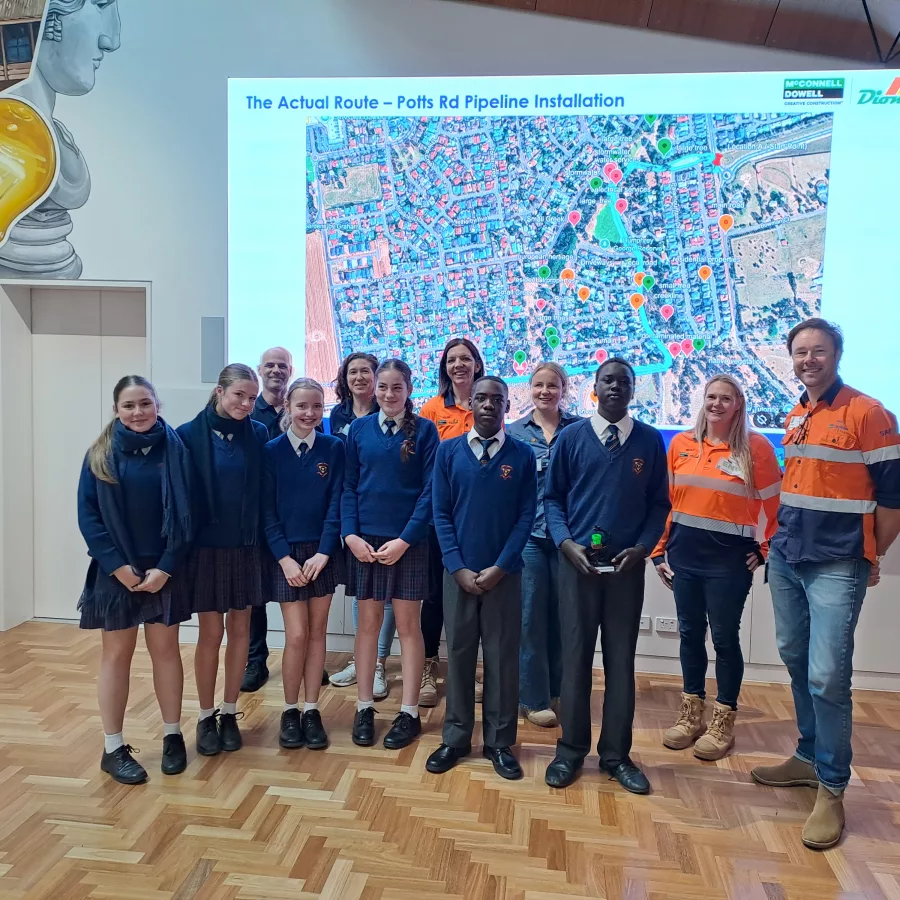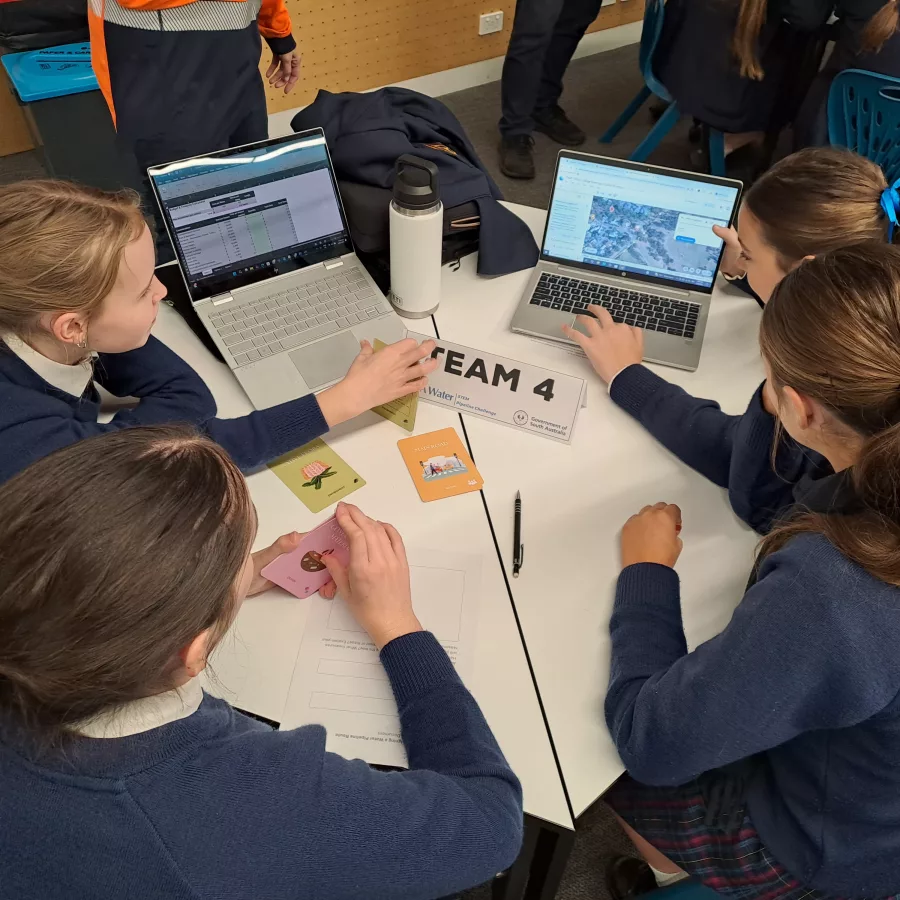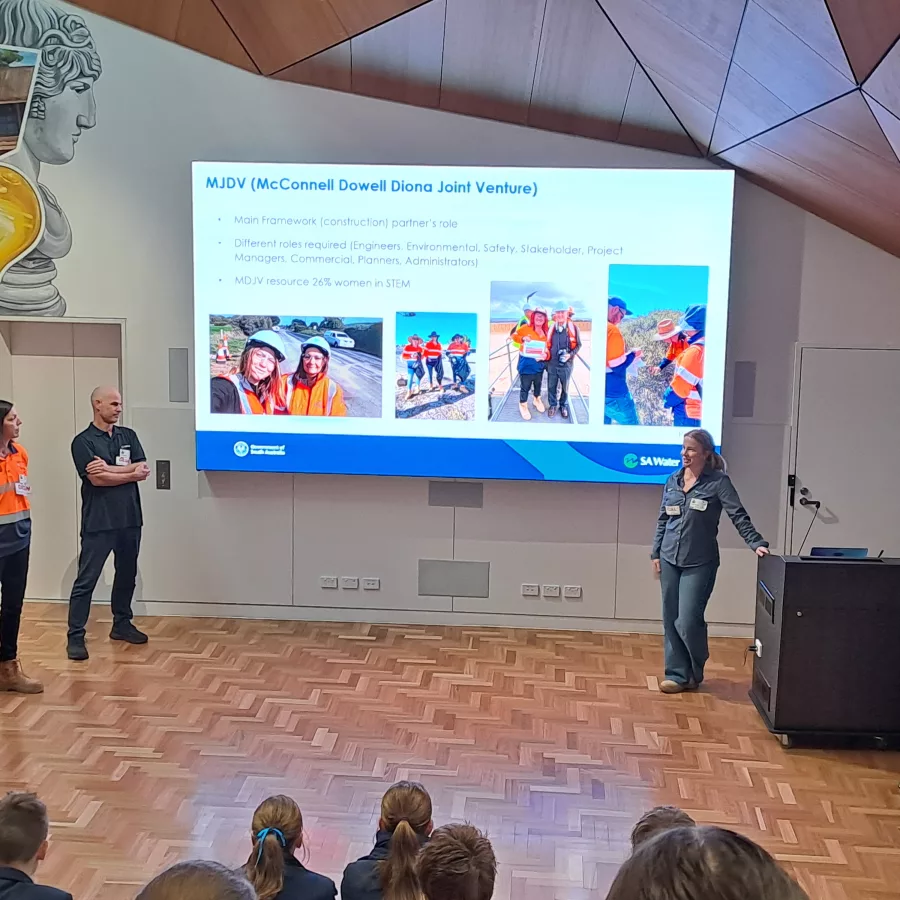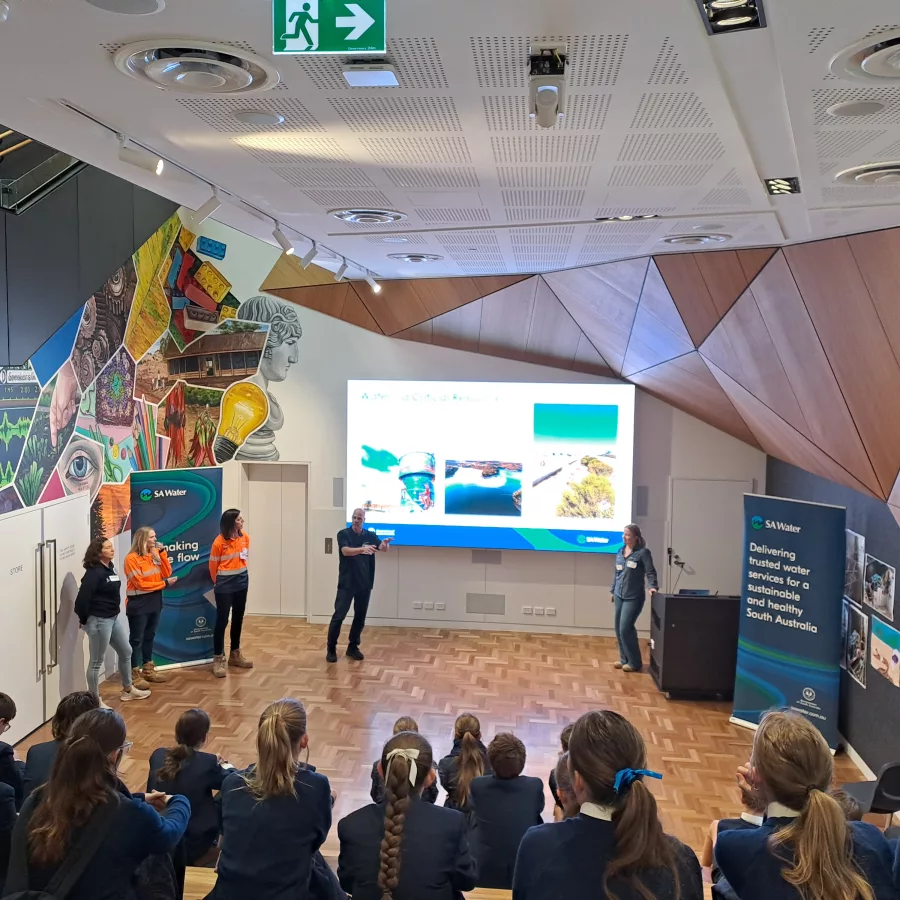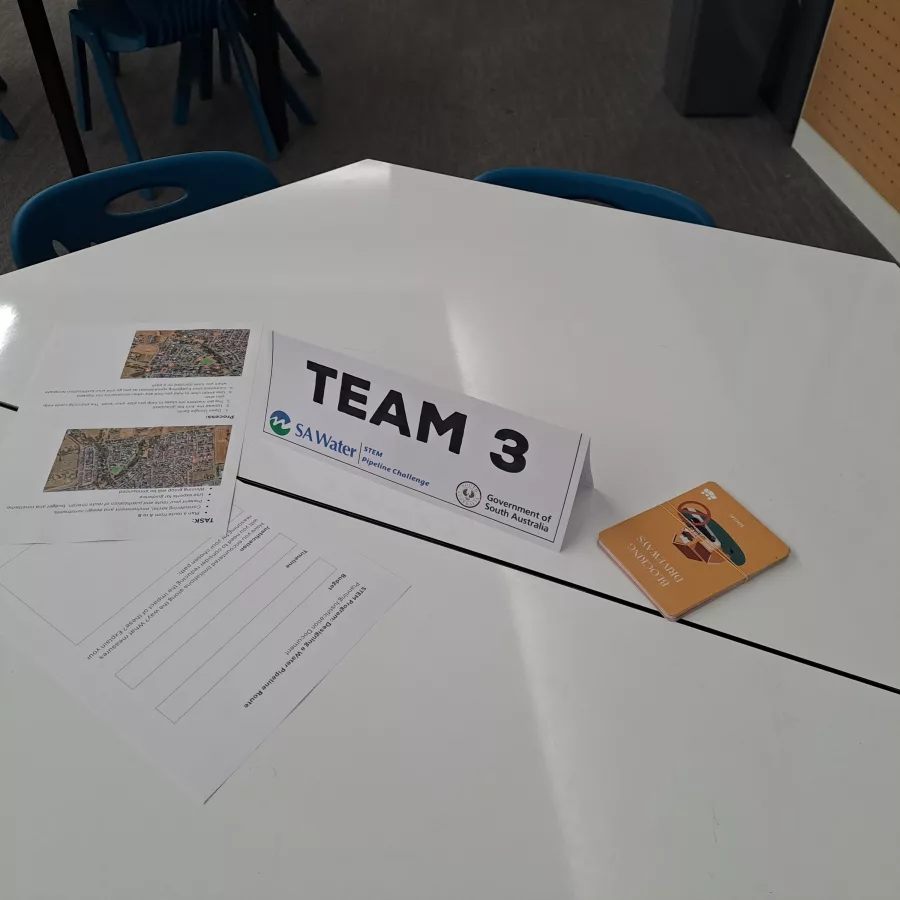Year 8 STEM Incursion: Designing a Water Pipeline
In a collaborative effort between Trinity’s STEM, TICS and Geography teams, a select group of Year 8 students recently took part in a STEM opportunity that brought real world engineering and planning into the classroom.
This hands-on experience was developed in collaboration with Ross Riach, Leader of STEM and Innovation, and Geography teacher Terence Gallagher, with support from SA Water and the McConnell Dowell Diona Joint Venture.
Students were challenged to design a trunk main pipeline route inspired by the Potts Road to Alexander Avenue Pipeline Project. Working in teams, they used a base map, a KML file in Google Earth, an industry standard software tool, and a custom-built Budget and Timeline Calculator to plan their route. The use of professional tools like Google Earth reinforced the importance of providing students with access to authentic digital platforms that mirror those used in the field.
They had to navigate a range of real-world constraints including environmental factors such as native vegetation, fauna, habitat, waterways, topography and contamination; cultural and historical considerations including Aboriginal and European heritage; and social and practical issues such as construction noise, dust, vibration, traffic, night works, driveway access, business impacts and private land acquisition. Engineering challenges involving overhead and underground services also had to be considered.
Each team was required to balance cost, time and impact while justifying their decisions to a panel of facilitators. Students had the opportunity to engage with professionals from civil, environmental, planning and design backgrounds. A project coordinator and several women working in STEM roles were present on the day, offering insights and answering student questions, helping to highlight the diversity of careers in infrastructure and the importance of inclusive representation in STEM fields.
Congratulations to the winning team of Gabby Gakiza and Ajak Alaak, whose design stood out for its thoughtful planning and minimal community impact. The runners up were Chloe Jewis, Jenna Woods, Eilish Pearce and Cassidy Sutcliffe, who also impressed with their strategic approach and teamwork.
This incursion was a pilot programme, and based on its success, we are exploring opportunities to expand it to more students in the future. It was a powerful example of how authentic, interdisciplinary learning can inspire students and connect classroom learning to real world challenges.
To learn more about the real-world project that inspired this incursion, visit SA Water Potts to Alexander Pipeline webpage here.
Share this page:


